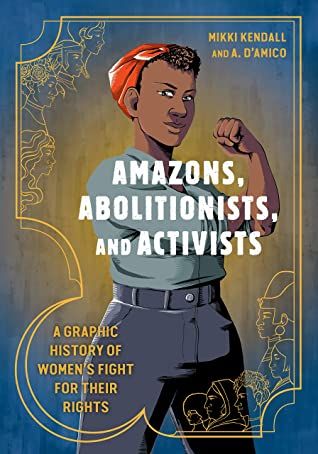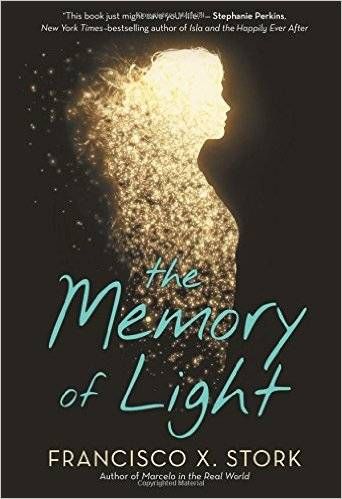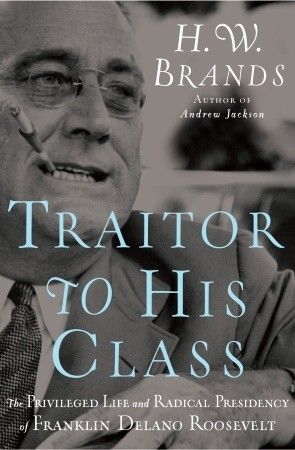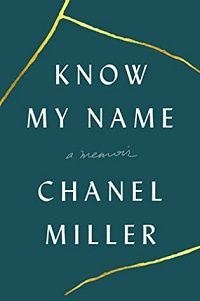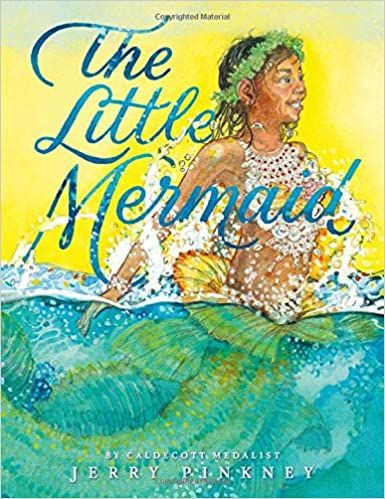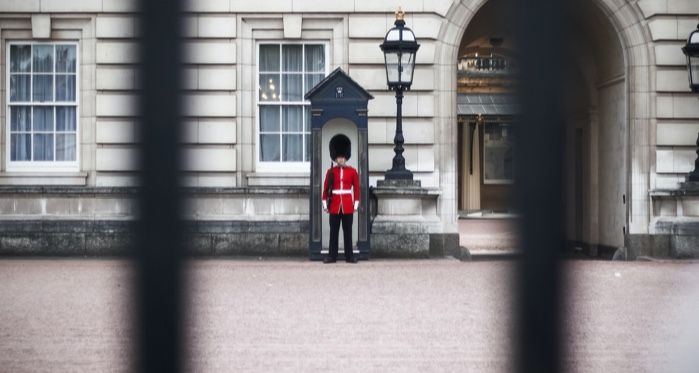
9 Books to Read After Watching Meghan and Harry on Oprah
I have never particularly cared about royals. But I couldn’t not pay attention when a biracial, brown girl from the U.S. was all of a sudden poised to become a PRINCESS*.
A BROWN GIRL WAS GOING TO MARRY A LITERAL, REAL LIFE PRINCE.
Being a brown girl myself, I had no delusions about how people would treat Meghan Markle. I had seen the way many white people reacted to Barack Obama’s presidency — to put it bluntly, no matter what they might say, there are a lot of white people who will, when actually faced with people of color being in positions of prestige or power, get real mad about the house n— getting uppity when they should have been happy with their proximity to whiteness (and thus proximity to respect) by simply being mulatto. I use that antebellum language deliberately because there is virtually no difference in perspective; people just use different euphemisms to cover it. It’s okay to be Black or mixed, so long as you are grateful for light-skinned privilege and don’t get too big for your britches.
*Completely irrelevant that she is not technically a princess. In the cultural and fairytale sense, marrying a prince makes you a princess, and the symbolism attached to that is immense, and it matters.
The tl;dr of it all?
UK tabloids, the most vicious of media institutions known to all, have done nothing but attempt to destroy Meghan Markle in every way. She and her husband, Prince Harry, finally decided to step down from being “working royals.” According to the tabloids, it’s Markle’s fault. She’s awful, she’s spoiled and demanding, she can’t do anything right, she has ruined Harry.
Again, being brown myself, I am 100% certain that was not the full story. There is ALWAYS racism. I don’t have to know or like Meghan Markle, nor do I have to believe 100% of what she says, to know that a lot of the way she was treated was rooted in racism.
It is from that perspective, not as a celebrity drama follower, that I tuned into the recent exclusive interview of Harry and Meghan, conducted by their dear neighbor Oprah Winfrey.
Literally, though. They’re neighbors.
In a way I feel about guilty watching it, because if anything, I think that Markle and Harry (even if he has not, in my mind, done enough to contend with things like, say, that time he dressed up like a Nazi) deserve privacy. And just as it is not the job of marginalized people to hand out free emotional labor every time a privileged person asks, we the public aren’t entitled to interview after interview.
Good thing there are books! Below are titles that touch on a number of themes that came up during the interview with Meghan (Harry joined in halfway through).
Buckle up; this is going to take awhile.
“I didn’t know what I was getting into.”
Markle admits that the day she met the Queen for the first time, she was shocked to learn that even a spur-of-the-moment, casual family lunch would require some pomp and circumstance — namely, a curtsy. Harry and Fergie showed her as soon as she arrived. Thankfully, she passed the test. But, she says, overall she was given no training — and yet no grace, either — of how to live in the UK as a public figure. Little things, like the national anthem or church hymns, can be huge stressors when they’re all dumped on you at once. And the job of a royal spouse is so unclear to begin with.
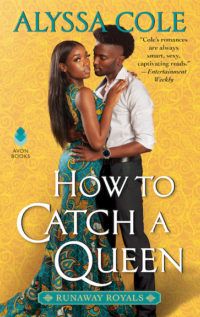
How to Catch a Queen by Alyssa Cole
Cole’s latest romance series begins with this novel about a young Black woman who will openly admit she was always out to bag a prince or a king but who arrives at the palace with expectations that don’t bear out. An educated and brilliant woman, she expects to be a political figure and wants to contribute to discussions on policy, and instead she’s shut out and told to shut up. For more tales of commoners thrust into centuries-old institutions, try Meg Cabot’s The Princess Diaries or a more recent spinoff starring a biracial brown girl, From the Notebooks of a Middle School Princess. You could also read up on another Hollywood star who married a royal with High Society: The Life of Grace Kelly by Donald Spoto.
Meghan vs. Kate
Women in the western world are routinely expected to conform or adhere to a number of binaries and double standards — madonna/whore; straight/lesbian; cis/trans; mom/girlboss. Markle was also set up to have a foil: her sister-in-law, Kate Middleton, wife to Harry’s older brother William. The double standard is nakedly on display in tabloid headlines that position Middleton as a saint and Markle as demon. Middleton was a healthy pregnant lady eating avocados, while the pregnant Markle eating avocados was akin to being decked out in blood diamonds, for example.
Amazons, Abolitionists, and Activists: A Graphic History of Women’s Rights by Mikki Kendall and A. D’Amico
Noted writer and feminist Kendall presents a diverse, well thought out history of civil rights and gender here, which is a great overview for how difficult it is to be a woman and do anything right. You might also explore the work of Jessica Valenti, Tamara Winfrey Harris, Anita Sarkeesian, and Roxane Gay.
Shouldn’t I be an asset?
Relayed to Markle through her husband when she was pregnant was the monarchy’s concern that her child might be dark-skinned. The horror! To that I say: have you seen her? My girl is hella light (though now that she lives near the beach, she may go a few shades deeper. As a mixed person, I can tell you I need at least five different shades of foundation depending on the time of year and the latitude in which I’m spending my time). Sure, you never know how the Punnett die is gonna roll — maybe her next child will be as dark as night. But it’s far more likely that the new baby will be relatively fair-skinned like her older brother and father. That this was a worry at all says it all: Markle, who is relatively light-skinned and has lots of typically European facial features, already enjoys plenty of privilege among people of color, but she’s still too dark for their taste. And that isn’t just an issue in Buckingham Palace. Markle has said she identifies as “mixed.” She’s entitled to claim her identity and heritage in whatever way she wants, but I have seen a lot of sniping about how she’s ashamed of being Black or she’s trying to dissociate from her Black side or she’s not really Black — plenty of it coming from the black community, to be honest. To be biracial is to exist in liminal space, and you can get whiplash from how quickly someone can welcome you into the club and then kick you out again because they think you’re not living up to what that identity community wants you to.
Discussing their initial desire to the institution to move out of the UK and step back from prominent royal roles into a more secondary one (akin to lesser royals like Fergie), the Sussexes (Harry and Meghan are Duke and Duchess of Sussex, so in a way it’s their family surname) said they had proposed moving to a Commonwealth country to retain that connection to the family and the job without being involved with it on the daily. Markle talked about representation and how “you can’t be what you can’t see” (my Rudine Sims Bishop–loving heart skipped a beat — Meghan, if you want to talk representation and kid lit with a fellow mixed chick, hit a girl up), and she made a good point: the Commonwealth is HUGE, and much of it is people of color. If you want to play identity politics, you should see Markle as an asset. But they don’t. Hmmm, I wonder why?
Passing by Nella Larsen
I can’t not mention this classic by Nella Larsen as a great place to start if you want an education (or affirmation of an experience) in colorism. You’ll soon be able to see a movie of it, too, nearly 100 years after its original publication (helmed by a woman director who identifies as part black but was assumed to be white, no less!). Other books on colorism, passing, mixed race identity, and liminal spaces I’d recommend are Caucasia by Danzy Senna; The Vanishing Half by Brit Bennett; or Inventing Victoria by Tonya Bolden. Nonfiction your thing? Our Kind of People: Inside America’s Black Upper Class by Lawrence Graham; The Origin of Others by Toni Morrison; or Even This Page is White by Vivek Shraya are good places to turn.
“I needed help, and they said it wouldn’t look good for the institution.”
Markle disclosed in the interview that during her pregnancy with her son Archie, she was so attacked, overwhelmed, and destroyed that she was contemplating suicide. She called her experience of her pregnancy and the media coverage of it “almost unsurvivable.” When she asked “the firm” (which, if I understand correctly, is the overall team that manages communications, access, procedures, and the day-to-day of the royals’ lives, professionally and personally) for help finding mental healthcare, they told her it was out of their hands, because she “was not a paid employee.” They also forbade her to seek it out herself. It’s not okay to see anybody associated with the monarchy in distress, but also they wanted to remind her that they didn’t really see her as a part of the family anyway.
The Memory of Light by Francisco X. Stork
Surviving a suicide attempt does not cure a person of depression or any other illness they may be suffering from. Survival can even lead to grief that must be reckoned with. It’s a shock to the system. You might pick up this novel and follow it with Girl on the Line by Faith Gardner or More Happy Than Not by Adam Silvera, three YA novels about the healing process. To understand other mental illnesses, might I suggest (Don’t) Call Me Crazy, edited by Book Riot’s own Kelly Jensen, with contributors that include a couple more Rioters, including me?
And also, Harry
To be honest, I’m not quite as impressed with Harry and think he could be doing a bit more to stand up for his wife. But at least he admits that he had a blindspot — race — that he had to take stock of when he married Meghan. Whether it’s enough or not, and while it’s not as simple as the tabloids made it seem (“f*** you all, byeeeee!”), it is inarguably notable that a member of the royal family has withdrawn from public association with the family. He and Meghan are living on her income and savings from being an actress and the money his mother Diana left to him after her death — not royal money. I do not weep for them, and their children will not go hungry, but like I said, it’s notable.
Traitor To His Class: The Privileged Life and Radical Presidency of Franklin Delano Roosevelt by H.W. Brands
My favorite president and author of my favorite federal program, the New Deal, did not please his wealthy friends and his family when he had the audacity to…care about the many poor people during the Great Depression? I guess? Pissing off your rich friends and family is a great flex and I’m here for it, just as I’m here for Mary L. Trump’s Too Much and Never Enough: How My Family Created the World’s Most Dangerous Man. If the real world is too real for you right now (and I can’t blame you for that), try a novel about toxic families instead: maybe You Exist Too Much by Zaina Arafat, The Majesties by Tiffany Tsao, or Gingerbread by Helen Oyeyemi.
Stripped of Your Identity
From the time she moved into the palace until she and her husband left the family and the institution for Canada, Markle told Oprah, she literally didn’t see her passport, driver’s license, or keys. After her marriage and during her pregnancy, “the firm” wouldn’t let her go out to see her friends if it seemed like the media was having a particularly good time flinging insults at her a given week, so she spent four months essentially under house arrest.
Know My Name by Chanel Miller
Markle’s life as the partner of a member of a royal family means she spent a lot of time being spoken about without having the freedom to speak up. People can be silenced by institutions other than a monarchy, such as legal injunctions or simply public opinion. Miller was first known to us as Emily Doe, Brock Turner’s victim, and her powerful impact statement went viral. Yusef Salaam, a member of the Exonerated Five, cowrote (with Ibi Zoboi) a novel inspired by his own experience of delayed justice, Punching the Air. Or try Words Have a Past: The English Language, Colonialism, and the Newspapers of Indian Boarding Schools by Jane Griffith for a look at how the children forced into those oppressive institutions attempted to resist and have since spoken up.
In another moment as the three toured the grounds of the couple’s Santa Barbara home, Markle mentioned flipping through channels while at Nottingham Cottage and stopping on Disney’s The Little Mermaid. “Oh my God,” she recalled thinking. “It’s about a princess who falls in love and loses her voice…but she gets it back again.”
The Little Mermaid by Hans Christian Andersen, illustrated by various
It’s worth noting that unlike other fairytales, which come from a folk tradition, The Little Mermaid is a tale with a known origin and author: Hans Christian Andersen. But that doesn’t mean there aren’t numerous versions of it, some darker than the others. The original text has the mermaid not just losing her voice — every step she takes feels like the stab of a knife, and when she loses the prince, she doesn’t go home like a losing contestant in The Bachelor. She dies. I’m partial to this rendering of the mermaid as a Black girl, as I’m sure Meghan, always a princess in my heart, might be. Other versions of the tale that stand out are those by illustrators Lisbeth Zwerger, Robert Sabuda, and Charles Santore.



